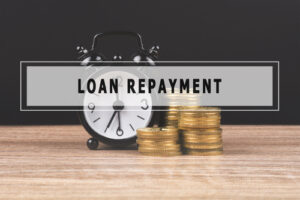Strategies for Repaying a Hard Money Loan Efficiently
If you want to purchase real estate, there are several financing options to explore. For instance, you can apply for a mortgage loan or explore alternative methods, like hard money loans. Regardless of your chosen method, planning how to repay it over time is crucial. Today’s article discusses repaying a hard money loan quickly and efficiently and what happens if you fail to make payments.

Contents of This Article:
- What to Know About Repaying a Hard Money Loan
- Strategies for Repaying a Hard Money Loan
- Additional Costs to Expect With Hard Money Loans
- What Happens When You Default on a Hard Money Loan?
- Contact a Reputable Lender Near You Today
What to Know About Repaying a Hard Money Loan
Like any type of real estate loan, when you take out a hard money loan, it’s crucial to come up with a viable strategy to repay it. However, unlike most mortgage loans, hard money loans have high-interest rates and generally higher monthly payments. As such, it’s important to plan accordingly.

Another thing to remember with hard money loans is the amount of time you have to repay them. While you may have 20 or 30 years to repay a mortgage loan, residential hard money lending works differently. They’re short-term financing options, which means you’ll generally have to repay them within one to three years.
One major difference between hard money loans and mortgage loans is your monthly payments. Some hard money lenders charge interest-only payments, meaning you don’t pay any money toward the principal loan amount monthly. Instead, you pay back the full principal amount at the end of the loan cycle.
So, while your interest rate is higher, you generally pay less interest over time for a hard money loan. For traditional mortgage loans, your monthly payments include interest and a portion of the principal loan amount.
Strategies for Repaying a Hard Money Loan
Hard money loans are great tools for helping investors obtain properties and make a profit. However, repaying a hard money loan is a large responsibility. After all, your loan exit strategy can determine whether you profit or break even on your investment. As such, here are a few ways to repay a hard money loan effectively.
Use Proceeds From Selling Your Investment

Using the proceeds from selling your investment property is one of the most common repayment methods for hard money loans. Generally, hard money loans allow investors to purchase run-down properties quickly. Then, after an investor increases the property’s value through repairs, they can sell it for profit.
That said, repaying a hard money loan with this strategy requires good planning and investment skills. After all, you have to find an excellent fix-and-flip property, invest in the right contractors to help fix it, and find a buyer within the period of your loan.
Refinance the Investment Property
If you don’t intend to sell the property right away, you can refinance with a long-term loan. This strategy is good for rental property or commercial property investors. Some investors use hard money loans to get fast financing, giving them time to consider options for long-term financing.
Use Cash From Another Source

Finally, while you can use the profits from selling your investment property, you can also use cash from another source. For instance, you can use the profits from another property or from a new hard money loan. However, this is generally a last-minute option when your original repayment plans fall through.
Using funds from a different source can disrupt other parts of an investor’s business since you’re redirecting money from the initial intended use. However, it can give you more time to profit on the property, especially if you need more time to close a deal.
Additional Costs to Expect With Hard Money Loans
Investing in real estate requires a lot of time for planning and saving. After all, several costs come with buying real estate–some that you might not think of! Aside from your monthly hard money loan payments, here are some additional costs to prepare for.
Financing Costs
- Loan Amount- Your hard money loan may cover up to 90% of the property’s purchase price. Additionally, if you plan on renovating the property, your loan may also cover those costs.
- Origination Fees- Most hard money lenders charge origination fees or points upon working out a loan deal. Generally, these costs are between 2% and 5% of the loan amount.

- Processing Fees- Some lenders have a team that handles and prepares documents, ensuring everything is accurate and executed correctly.
- Interest Rate- Interest rates for hard money loans are quite high compared to other loan types. You can expect to pay an interest rate of around 8% or higher.
- Total Interest Paid- If you want to calculate exactly how much you’ll pay for your hard money loan, you can multiply the monthly repayment amount by the number of months you hold the property for.
Buying Costs
- Appraisal Fee- Before you fund a property, getting it inspected and appraised is important to understand the actual value. That way, you and your lender can understand the collateral on the line.
- Attorney and Closing Costs- When purchasing real estate, you generally pay attorney fees and closing costs to seal the deal.
- Title Insurance- Getting title insurance for both you and your lender is important. After all, it ensures the title is protected against any potential issues with the property.
Holding Costs
- Taxes- Once you take ownership of a property, you’ll have to pay property taxes. As such, you’ll want to include taxes when accounting for your expenses.
- Insurance- Additionally, you’ll need insurance on the property to give you and your lender an extra layer of protection. The cost of insurance depends on the value of the property.
- Utilities- When buying any real estate, you must prepare for utility costs.
- Loan Repayment- Each month you own the property, you’ll need to pay your lender the minimum monthly payment.
Selling Costs
- Realtor Fees- When it’s time to sell your investment property, you’ll need to cover realtor fees, which can cost around 3% and 5% of the selling price.

- Attorney and Closing Costs- You’ll have to account for standard closing costs when selling your investment, which generally includes attorney and other 3rd party fees.
- Home Warranty- When selling a property, you may want to get a home warranty, which protects critical systems and appliances not covered by homeowner’s insurance.
- Staging and Marketing- If you’re trying to sell your investment property, marketing it online and staging it with furniture can increase your chances quickly.
What Happens When You Default on a Hard Money Loan?
You’ll want to avoid defaulting on any type of loan altogether. The outcome usually results in losing your investment. However, some lenders have more flexibility if you can’t make your hard money loan payment for whatever reason.

For instance, some lenders have flexibility programs to help you get back on track, especially in times of crisis. However, you may face a court-mandated foreclosure if you continue to miss payments. Unfortunately, if this happens, your investment property may be reclaimed by your loan provider and sold quickly.
Missing payments or dealing with a foreclosure can negatively impact your credit score. As such, you’ll want to avoid this scenario altogether. Talk to your lender immediately if you can’t pay your monthly hard money loan payments. Your lender may allow you to catch up on missed payments before the property enters a state of default.
Contact a Reputable Lender Near You Today
Repaying a hard money loan doesn’t have to be complicated. Generally, you don’t have to worry as long as you can make your monthly payments. However, having enough capital to pay back the principal loan amount is crucial at the end of your loan term. As such, you’ll want to plan and save accordingly.
If you’re looking for a trusted lender to fund your next investment property, look no further than Maryland Hard Money Lenders. Our dedicated professionals work with investors to help them fund rental properties, fix-and-flip projects, and other types of real estate. So, if you want to get started with your next investment property, fill out a loan application with Maryland Hard Money Lenders today!



